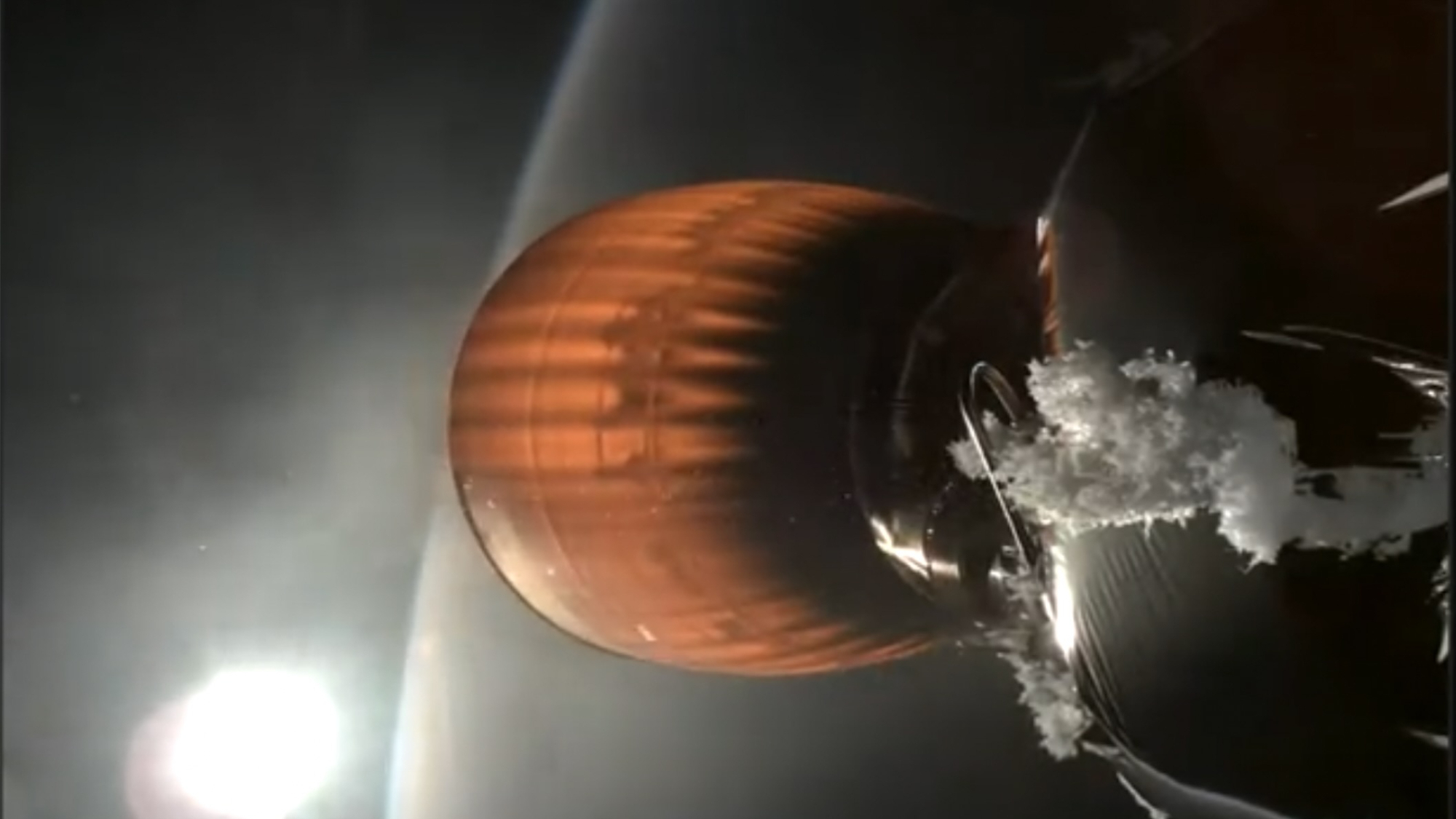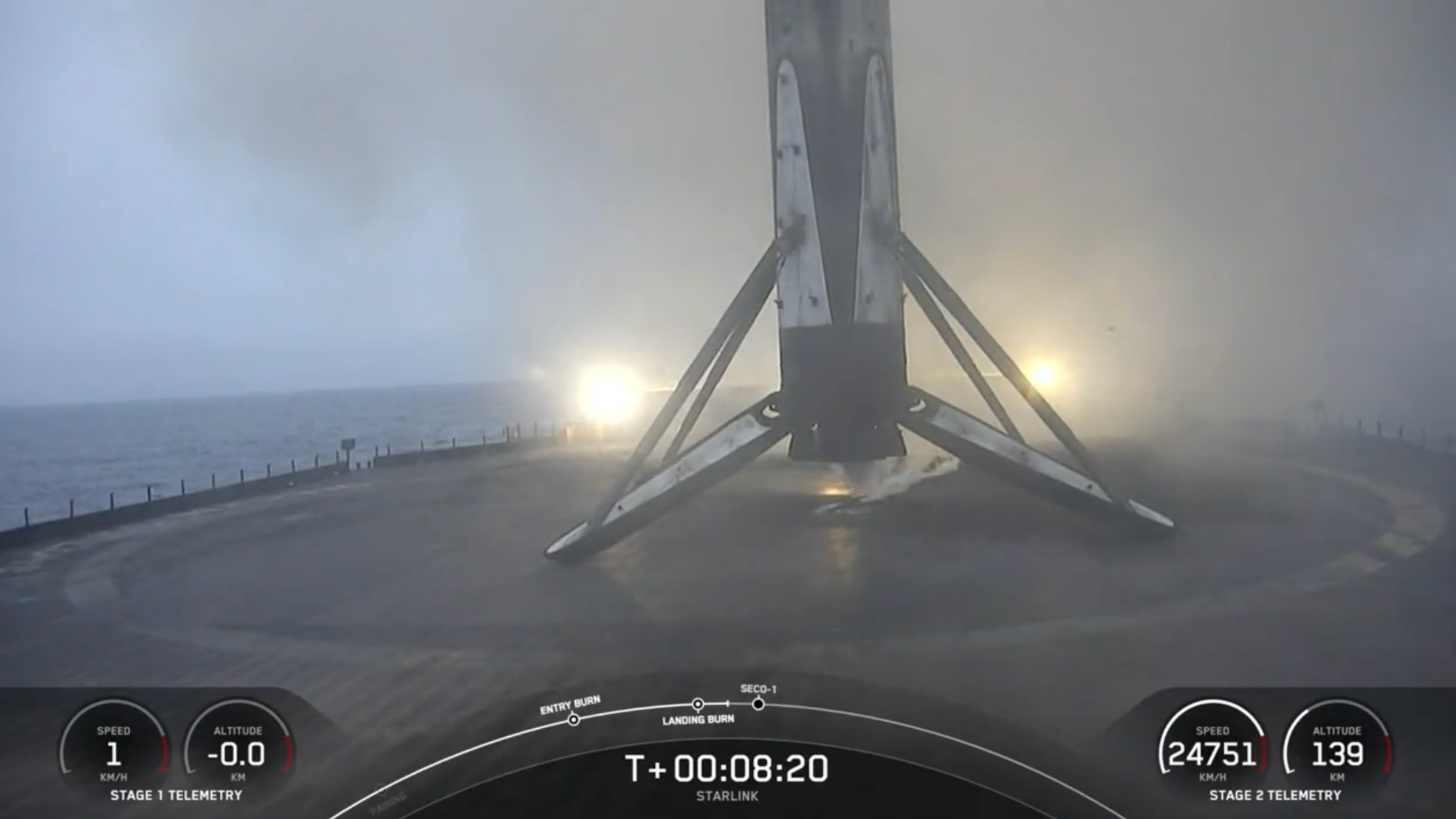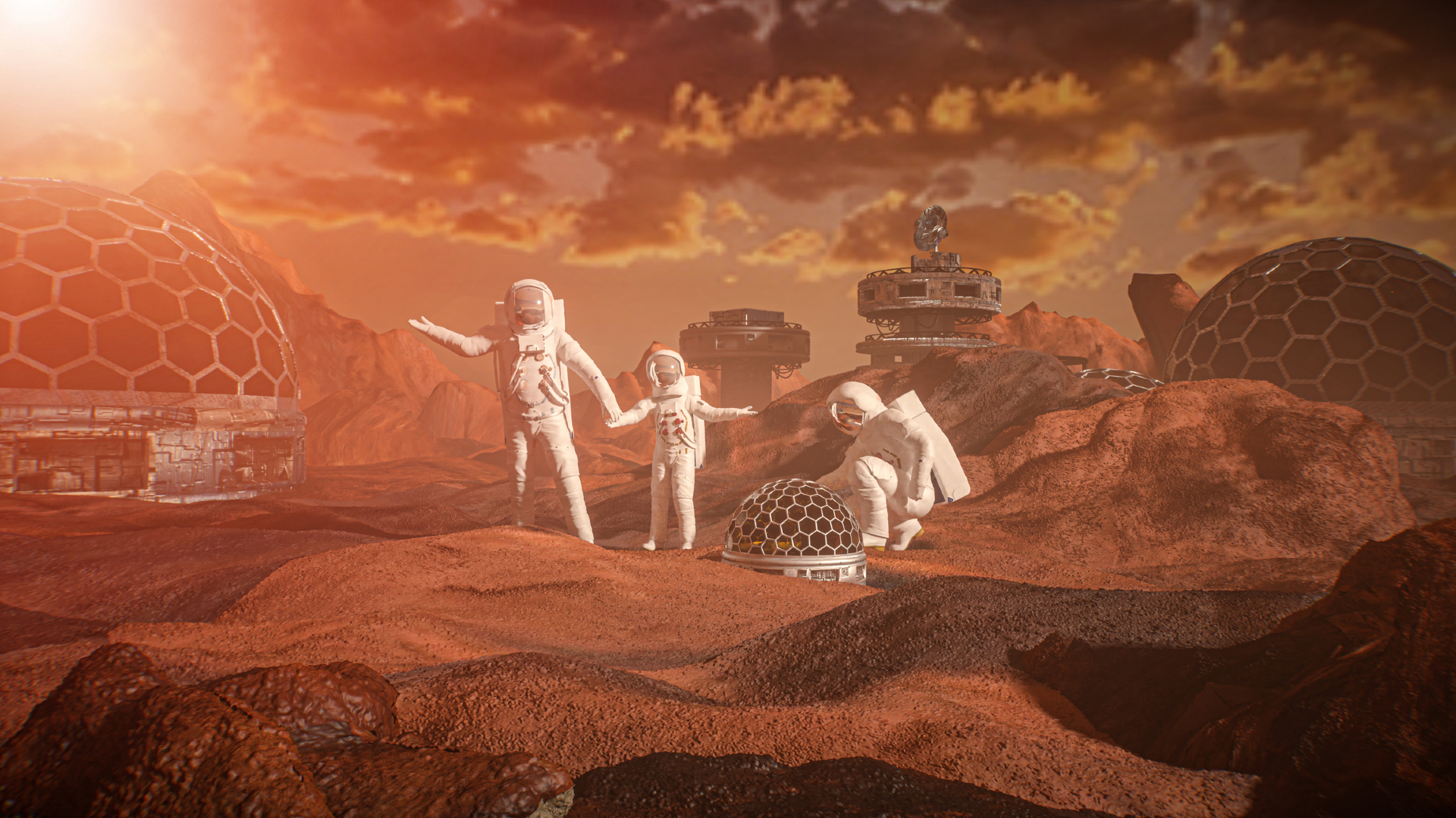SpaceX Falcon 9 rocket suffers failure during Starlink satellite launch (video)
Breaking space news, the latest updates on rocket launches, skywatching events and more!
You are now subscribed
Your newsletter sign-up was successful
Want to add more newsletters?

Delivered daily
Daily Newsletter
Breaking space news, the latest updates on rocket launches, skywatching events and more!

Once a month
Watch This Space
Sign up to our monthly entertainment newsletter to keep up with all our coverage of the latest sci-fi and space movies, tv shows, games and books.

Once a week
Night Sky This Week
Discover this week's must-see night sky events, moon phases, and stunning astrophotos. Sign up for our skywatching newsletter and explore the universe with us!

Twice a month
Strange New Words
Space.com's Sci-Fi Reader's Club. Read a sci-fi short story every month and join a virtual community of fellow science fiction fans!
SpaceX's workhorse Falcon 9 rocket suffered a rare anomaly on Thursday night (July 11).
The incident occurred during a launch of SpaceX's Starlink internet satellites from Vandenberg Space Force Base in California. The Falcon 9 performed well initially; its two stages separated on time, and the first stage came down for a landing on a drone ship about eight minutes after liftoff as planned.
But the rocket's upper stage, which was hauling 20 Starlink spacecraft to low Earth orbit, encountered a problem — a leak of liquid oxygen, which had serious repercussions for the mission.
"After a planned relight of the upper-stage engine to raise perigee — or the lowest point of orbit — the Merlin Vacuum engine experienced an anomaly and was unable to complete its second burn," SpaceX wrote in an update today (July 12). (The Falcon 9's upper stage is powered by that single engine; the first stage sports nine Merlins, which explains the rocket's name.)
"Although the stage survived and still deployed the satellites, it did not successfully circularize its orbit, but it did passivate itself as normally performed at the end of each mission," the company added. "This left the satellites in an eccentric orbit with a very low perigee of 135 km [84 miles], which is less than half the expected perigee altitude."
SpaceX engineers worked to get the 20 Starlink satellites — 13 of which were capable of beaming service directly to cell phones — to raise their orbits using their onboard ion thrusters. But the hill was too steep to climb, according to the company.
"At this level of drag, our maximum available thrust is unlikely to be enough to successfully raise the satellites," SpaceX wrote in the update. "As such, the satellites will reenter Earth’s atmosphere and fully demise. They do not pose a threat to other satellites in orbit or to public safety."
Breaking space news, the latest updates on rocket launches, skywatching events and more!
The Falcon 9 is the most prolific rocket flying today, with 69 launches under its belt already in 2024. It's known for its reliability; before Thursday night, the Falcon 9 had suffered only one full in-flight failure in its storied history, which occurred during the launch of a robotic Dragon cargo capsule toward the International Space Station (ISS) in June 2015.
The Falcon 9 is also human-rated; it has launched 13 crewed missions to date, nine of which have sent astronauts to the ISS for NASA. It's unclear how Thursday's failure will affect the rocket and its manifest at this point; SpaceX will first need to figure out exactly what happened and how to address the issue — an effort that's already underway.
"SpaceX will perform a full investigation in coordination with the FAA [Federal Aviation Administration], determine root cause, and make corrective actions to ensure the success of future missions," SpaceX wrote in today's update. "With a robust satellite and rocket production capability, and a high launch cadence, we’re positioned to rapidly recover and continue our pace as the world’s most active launch services provider."
Most Falcon 9 missions these days service the giant and ever-growing Starlink megaconstellation, which currently consists of more than 6,100 operational satellites; 49 of the 69 Falcon 9 launches so far in 2024 have been dedicated Starlink missions.
Editor's note: This story was updated at 4:30 p.m. ET on July 12 with the news from SpaceX that all 20 Starlink satellites will be lost due to the Falcon 9 upper-stage failure.

Michael Wall is a Senior Space Writer with Space.com and joined the team in 2010. He primarily covers exoplanets, spaceflight and military space, but has been known to dabble in the space art beat. His book about the search for alien life, "Out There," was published on Nov. 13, 2018. Before becoming a science writer, Michael worked as a herpetologist and wildlife biologist. He has a Ph.D. in evolutionary biology from the University of Sydney, Australia, a bachelor's degree from the University of Arizona, and a graduate certificate in science writing from the University of California, Santa Cruz. To find out what his latest project is, you can follow Michael on Twitter.


